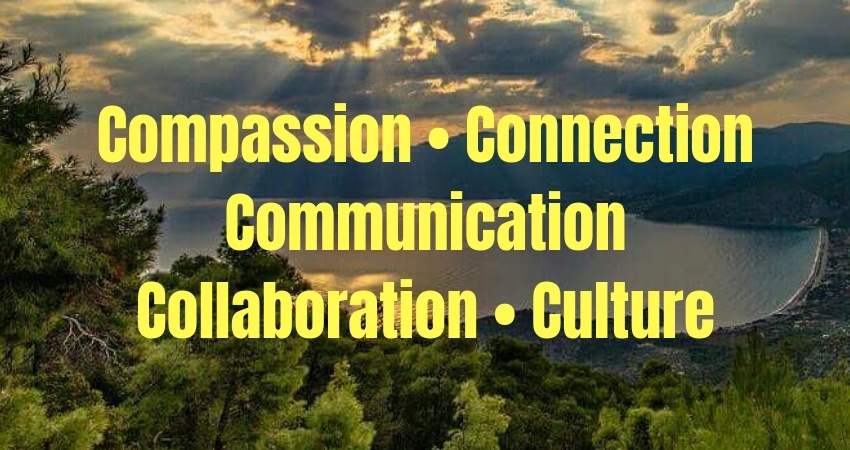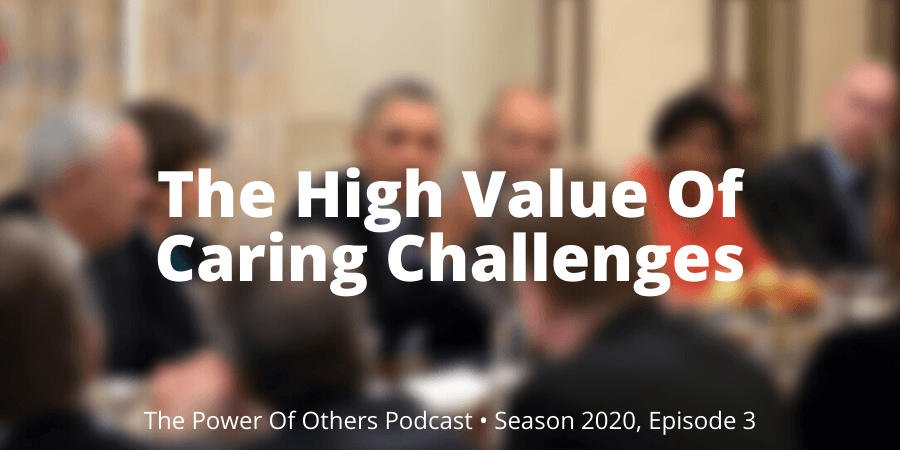Podcast: Play in new window | Download (Duration: 17:52 — 24.7MB)
Subscribe: Apple Podcasts | Spotify | RSS | More
Last week I read yet another article about the dangers of executive coaching. One of the dangers listed was the morphing of the relationship into a friendship where the coach is no longer pushing or challenging the client. Over time they’ve become friends and now things are different.
It prompted me to go back and revisit some earlier articles, especially some appearing in the Harvard Business Review where there’s been a considerable disdain for executive coaching prompted largely by charlatans and poor practices. I read articles I’d never seen before. I revisited other articles I’d seen over the years. Perhaps I was looking for a theme, but in none of the pieces did I see myself and how I’ve worked for the past decade in helping leaders move forward.
Page after page of advice-giving, expertise, and imposing beliefs sounded nothing like how I view the process. And missing in almost every article was the first of the things that are foundational for what I’ve learned to be most effective. Compassion.

Five C’s are all part of the biggest C of all – challenge. Not adversity. Not an obstacle. Challenge in the sense of pushing, nudging and helping people see things they may not otherwise see. It’s about improved performance. It’s not about keeping a client for life. For me, it’s always been about moving forward to a place where the work is complete (at least this stage of it).
I admit it’s not an ideal business model – at least not the way I approach it. But it’s also why I’ve been compelled over the last 4 years to learn so much about the power of others. It’s the power of US. When we’re surrounded by others – multiple people – then we can better leverage the individual and collective insights, experiences, wisdom, and counsel from people whose value will grow over time. Now that’s a very different value proposition because time forges the compassion so vital for each of us. Instead of “coaching” that should likely have a necessary ending, these groups increase in value year after year where members can do for each other what nobody else can.
I start with compassion because we find it difficult to find value in the challenges of people who don’t care about us. It’s possible, but we have to work very hard to use it for our benefit.
Somebody challenges your idea or thoughts. You know they don’t care about you, or for you. Fact is, you don’t much like them either. How does that challenge work out for you? Not well. Because you both have a bias that prevents you from seeing value in each other’s opinion or feedback. The challenge may be perfectly valid, but the person isn’t valid. Not to you anyway. Nor you to them. The value proposition is extremely low because the negative emotions are in the way. Where no compassion exists there’s little or no value. So it begins with CARING.
Why should we care about others?
Maybe it’s a philosophical or religious question, but permit me to make a statement that I’d like you to consider. We should care because it’s good for US. Yes, there are plenty of arguments for how it’s the right thing to do and how others are benefited, but I know we’re mostly interested in ourselves. It’s good for us to care about others. It comes back toward us in major waves of good as others reciprocate. It eliminates jealousy and bitterness, which never serve to make us achieve more. Or perform better. It deepens relationships with others who will help us when we need it the most. There are plenty of great reasons why we should express compassion and care for others. And why we should put a premium on it when others give it to us. Somebody has to start this. It may as well be YOU.
I agree with the articles that warn how coaches can grow too friendly where challenges don’t happen. Whether that occurs because the coach is fearful of losing the client or not, I can’t say. I can only speak for myself. I’ve never entered any coaching engagement with the thought that it’d last forever. In fact, I push rather hard to establish an endpoint so clients identify what they most want to achieve. Sometimes after reaching that milestone, new milestones have been established. No problem. Sometimes new clients within an organization emerge. That’s why it’s not uncommon for my engagement to last a few years (or longer). But I’d be hard-pressed to tell you about an engagement with a single client that lasted for years without an adjustment in the goal. It’s just not how I work.
Questions. Helping people figure it out for themselves.
These are the 2 key elements to my view – and my approach – for executive coaching. It’s both practical and effective.
The high value of caring challenges emerges when you don’t climb on the pedestal thinking you’re better than others. Not only do I think I’m not better or smarter, I know so. But I also know I have strengths that I work hard to leverage. One, I listen. I pay close attention. That makes understanding a priority in communication. I seek understanding. I want to see it correctly. Two, I ask good questions. Occasionally, great ones. Mostly, they’re born out of curiosity. And a quest to more deeply understand. Three, the objective isn’t for me to come up with the right answer because honestly I don’t always know what the right answer is. But I trust my clients to put the puzzle pieces together so they can figure it out. Afer all, they’re the ones who have to implement the solution. Not me. What might be ideal for me would be very unideal for them. Maybe they’re extraordinarily extroverted with very different skillsets than me. That would influence the solution that’s most fitting for them. There’s tremendous power in the phrase, “To each his own.”
The burden is on the caring challenge. The proper communication of the caring challenge is incumbent on the challenger. Yes, I understand that people can be overly sensitive and think any challenge is uncaring. I also understand that people can resist and resent the most caring challenges because of their own head trash. But if we assume responsibility for the delivery, then we can likely increase the odds that our well-intended challenge will result in helping the person.
A big part of the problem is challengers often spend more time on the challenge and not enough time on the caring. We get focused on the thing. The solution. Or the problem.
In order to get to the heart of the matter,
you first must get to the heart of the person.
I’ve been surrounded by older, wiser counselors all my life. I’ve sought them out. I’ve fostered deeper relationships with them. Over time I know they care about me. I care about them. It’s the foundation for all the benefits they provide me (and hopefully, my benefits to them). I’ve leaned on them for their wisdom, insights, experiences and willingness to challenge me because they seek my very best. It’s not about them. It’s about me and them helping me figure things out.
Caring challenges aren’t about anybody except YOU, assuming you’re the one being challenged. It’s about helping you become better.
Challenges aren’t always critical. Sometimes they’re just questions. One of the most powerful and caring challengers in my life would ask, “Are you sure you can do that?” That simple question would often stop me in my tracks and make me think – which was precisely the point of it all.
Other times the same challenger might ask, “Are you sure that’d be right?” That was more critical, but not harshly so. Nothing that would make me bristle. Again, it forced me to think.
Before you act, you must think. But not too much.
The high value of a caring challenge is to think through something so you can figure it out. Figuring it out is useless without actions. We all need to figure it out so we can take some meaningful action.
Leadership is about people. Management is about the work.
When you engage in leadership then you’re influencing people by helping them. You’re serving people. Bring higher value by first caring about people more deeply. Deploy compassion so you can build on top of that to establish the culture necessary for high performance – and helping people to become the best versions of themselves.
Do for people what they need. Caringly challenge them to improve, grow and develop. It won’t always be easy or painless, but you can do your part to make it more profitable. It’s about them. Benefit them. Help them. Serve them. Care about them. Enough to challenge them to be better.
Be well. Do good. Grow great.
Randy
